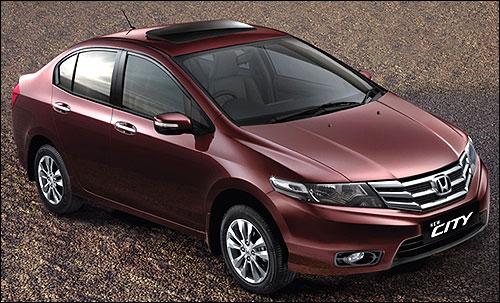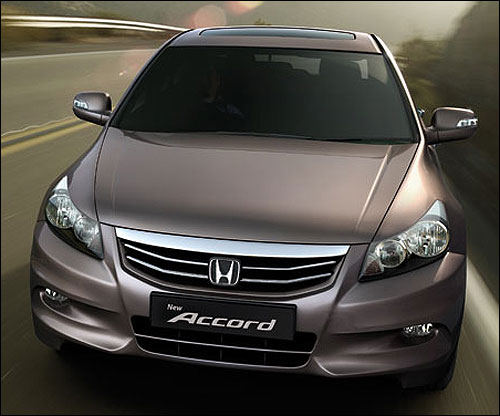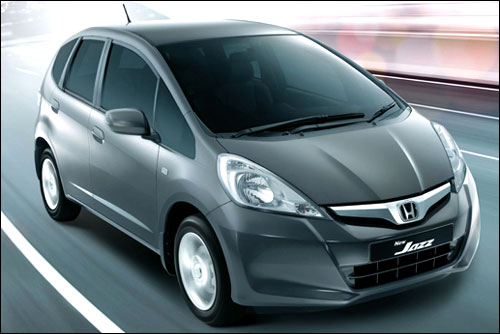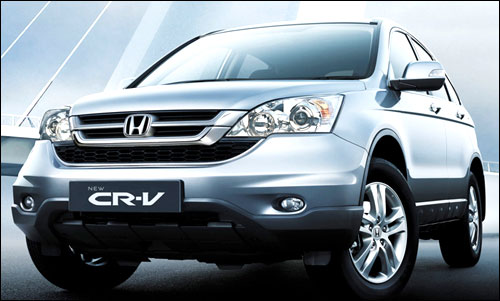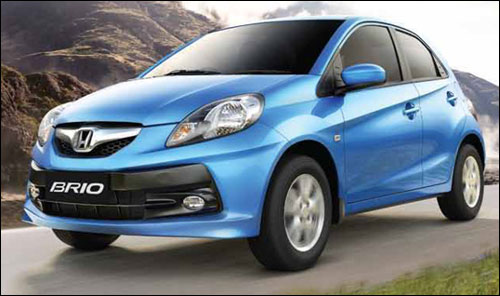 | « Back to article | Print this article |
Honda Siel on brink of turning sick, chairman told via board circular
Honda Siel Cars India Ltd (HSCI) chairman Siddharth Shriram was kept in the dark about the prospect of the joint venture car company having to declare itself a potentially sick unit under the Sick Industrial Companies Act (SICA).
Such a financial condition had impelled the management to expedite a board resolution for fresh infusion of equity capital through a rights issue.
The move is significant in that observers close to the developments do not rule out the possibility of Shriram, who controls Usha International Ltd (UIL) which has five per cent stake in the joint venture, looking at the option of selling his stake to a third party instead of Honda.
If that happens, though unlikely, it would add another dimension to the bitter battle being fought between the two partners, who started the joint venture 17 years ago.
Sources say under the joint venture agreement, UIL has the right to sell its stake to a third party.
Click on NEXT for more...
Honda Siel on brink of turning sick, chairman told via board circular
Shriram, who was not informed of the serious financial crisis in the company earlier, it is understood, came to know of the situation only through a circular resolution on March 16 this year, though no mention of the issue was made in previous board meetings.
Instead, the management had earlier told Shriram, it is alleged, that a fresh infusion of Rs 3,200 crore (Rs 32 billion) was needed to advance the establishment of a diesel engine plant in India by a year and also to finance its aggressive plans to introduce small cars and diesel variants in the domestic market.
Click on NEXT for more...
Honda Siel on brink of turning sick, chairman told via board circular
A request by Shriram for a board meeting to discuss the financial position of the company was ignored by the HSCI board, saying there was no need for it. The board passed a resolution on March 17 for the issuance of fresh equity and filed it with the registrar of companies.
Shriram declined to comment on the issue.
A spokesperson at HSCI, while declining to comment on the proceedings of the board of directors' meetings, terming these confidential matters, said, "We reiterate that HSCI has always complied with all regulations and corporate governance norms."
The spokesperson further added, "HSCI is not a sick company under law and has ambitious plans for the fast growing Indian auto market. In March 2012, we achieved our highest ever monthly sales, with a growth of 208 per cent over the same period last year, and are confident of continuing this performance in the new financial year."
According to sources in the know, HSCI on March 16 informed Shriram through a resolution by circulation that the company would become sick under SICA if equity shares were not allotted immediately.
Click on NEXT for more...
Honda Siel on brink of turning sick, chairman told via board circular
According to SICA, a sick industrial unit is defined as a unit or a company (having been in existence for not less than five years) which is found at the end of any financial year to have incurred accumulated losses equal to or exceeding its entire net worth.
The net worth is calculated as the sum total of the paid-up capital and free reserves of a company less the provisions and expenses, as may be prescribed. An industrial unit is also regarded as potentially sick or a weak unit if at the end of any financial year, it has accumulated losses equal to or exceeding 50 per cent of its average net worth in the immediately preceding four financial years and has failed to repay debts to its creditor(s) in three consecutive quarters on demand made in writing for such repayment.
Click on NEXT for more...
Honda Siel on brink of turning sick, chairman told via board circular
UIL had declined to participate in the rights issue in October and had opted to sell out its stake in the joint venture company. However, tensions surfaced between the two partners over the valuation of the shares to be sold by UIL.
The minority shareholder alleged lapses in corporate governance in the management of board affairs, saying critical resolutions regarding buying out the company's shares were passed without meaningful discussions.
Honda, which commenced sales operations in India with flagship sedan City in 1998, has seen its market share drop over the past decade due to increased competition from global players.
The company's lack of diesel engines has only added to its cup of woes in the domestic market.
Click on NEXT for more...
Honda Siel on brink of turning sick, chairman told via board circular
Last financial year (2011-12), its sales declined 8.5 per cent to 54,427 vehicles. Though sales were limited during the period due to constraints in the supply of components from Japan and Thailand, HSCI's volumes saw a drop even in the previous financial year (2010-11).
This was at a time when the overall automobile industry in India grew by a scorching 29 per cent to sell 2.52 million units.
Post the resumption of normal production in February this year, HSCI's sales grew 83 per cent in February to 8,856 units and 208 per cent in March to 11,016 units.
The company introduced its first small car, the Brio, in October last year, after more than a decade of selling large cars in the country. HSCI's market share has dipped to less than two per cent, whereas compatriot Toyota has raced ahead, selling 136,000 units last year to become the fifth largest car maker in the country.
